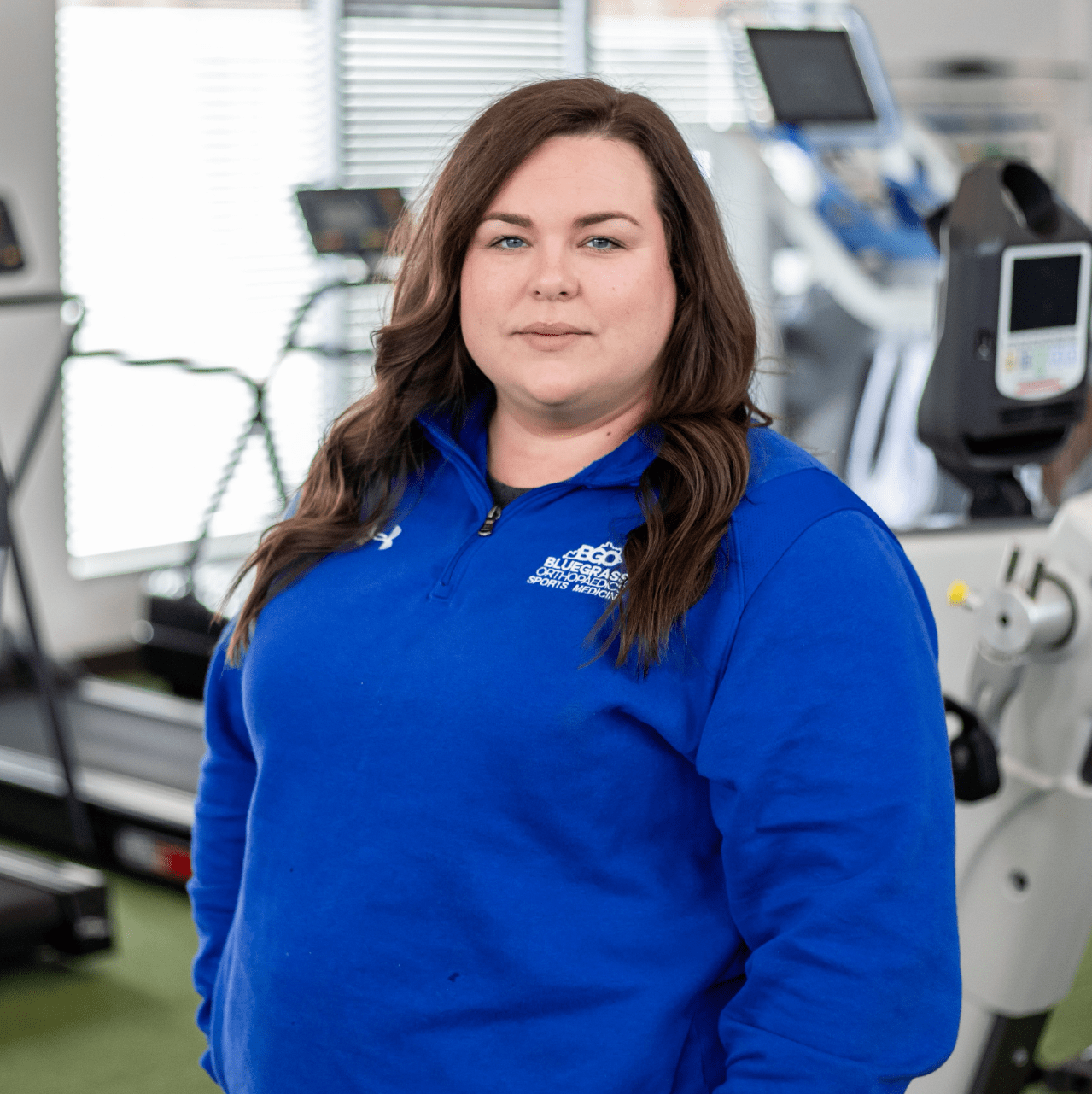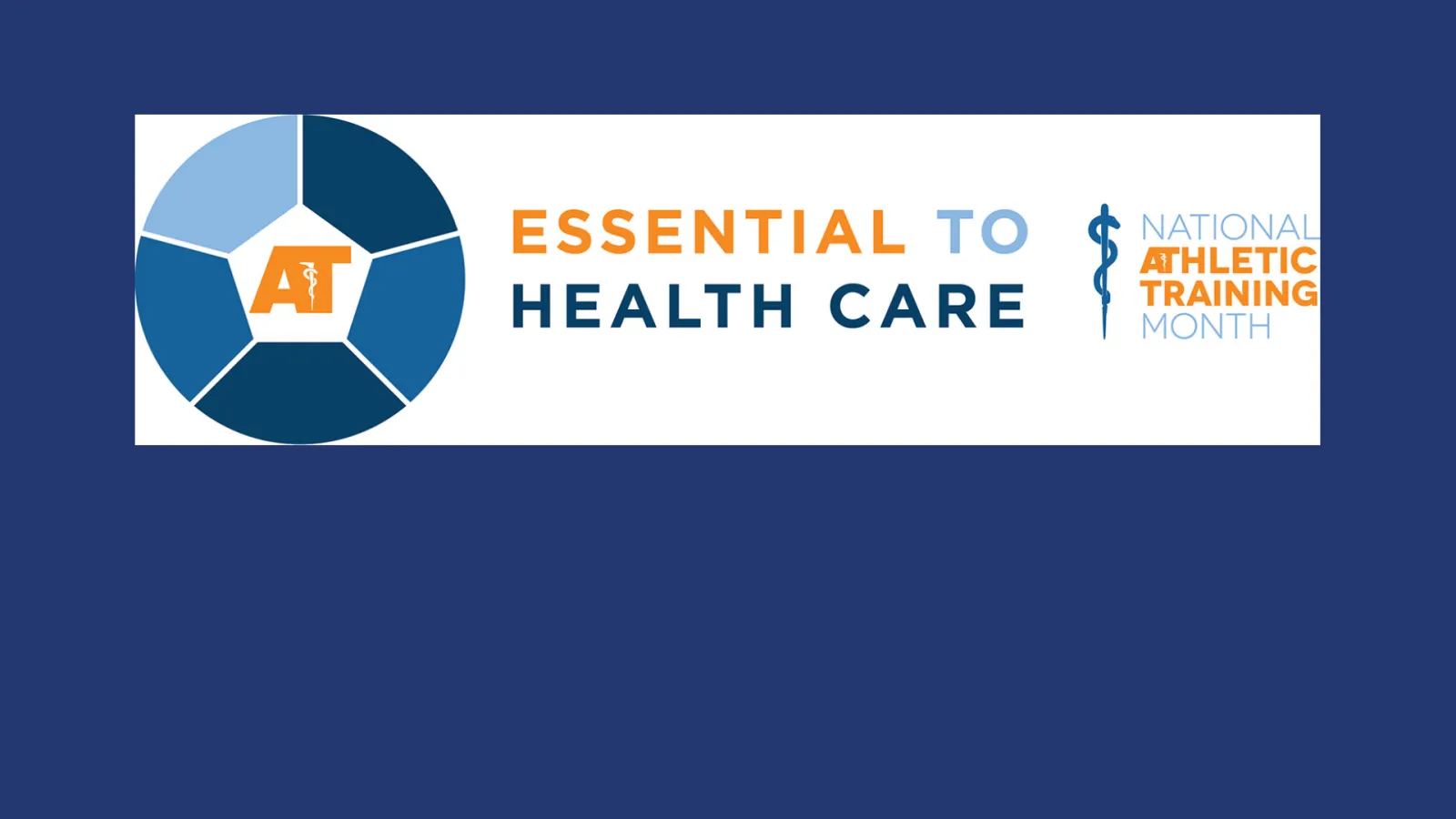
Athletic Trainers are Essential to Health
March is National Athletic Training Month! Many people are accustomed to seeing Athletic Trainers (ATs) on college sidelines, high school sidelines, or running on the field in the NFL. However, there are a lot of misconceptions about what Athletic Trainers are qualified to do and educated in. Athletic Trainers treat patients of all ages and ability levels and in a plethora of different settings.
Education Requirements for Athletic Trainers
The post-secondary education requirement for Athletic Training is currently a Masters program requiring some type of Baccalaureate Degree with courses including: anatomy, physiology, biomechanics, strength and conditioning, exercise physiology, biology, chemistry, and other science-based courses. These core courses are generally paired with more field-specific courses, such as risk management, pathology, ethics, rehabilitation, therapeutic modalities, pharmacology, nutrition, and others.
ATs are also required to obtain Continuing Education annually to maintain Certification as long as they are practicing. Some states require a Licensure in addition to Board Certification. The state of Kentucky requires both Board of Certification (BOC) and Kentucky Board of Medicine Licensure (KBML) Licensure to practice.
Domains of Athletic Training
Athletic Trainers are proficient in six (6) domains, as follow:
- Prevention
- Clinical Evaluation and Diagnosis
- Immediate Care
- Treatment and Rehabilitation
- Organization and Administration
- Professional Responsibility
While most people are familiar with the Immediate Care ATs provide, some of the other domains are less known. Prevention of Injury is a large component that Athletic Trainers, in all settings, strive for. Organization and Administration is imperative in the field of Athletic Training and all ATs are required to maintain documentation so that patients receive the best possible care. ATs are qualified to evaluate and diagnose a multitude of orthopedic injuries and are comfortable referring to Primary Care Providers and Specialties when indicated.
Workplace Settings for Athletic Trainers
Athletic Trainers are becoming increasingly valued both inside the medical community and beyond. They are no longer only associated with sideline medical coverage during high school, college, professional, and Olympic sporting events. Due to the diversity of training Athletic Trainers undergo, they are uniquely suited to work in a variety of settings. Athletic Trainers are flourishing in orthopedic clinics, physician practices, cardiac rehab clinics, industrial settings, police and fire departments, performing arts, and various branches of the military.
Locations for BGO Athletic Trainers
BGO Athletic Trainers can be found at the following locations:
- Corbin High School - Lucius Willson, MS, ATC
- Lexington Christian Academy - Cam Deckett, MS, ATC
- Estill County High School - Kirsten West, MS, ATC
- Scott County High School - Dan Volpe, MS, MA, ATC, CSCS
- Scott County High School - Hannah Clayton, ATC
- Great Crossing High School - Kayla Hanson, MS, ATC
- Great Crossing High School - Ansley Swann, ATC
- Rockcastle County High School - Ellen Reinhold, MS, ATC
- North Laurel High School - Jordan Marcum, ATC
- South Laurel High School - Jordan Marcum, ATC
- Commonwealth Soccer Club - Cory Brown, MS, ATC
- Kentucky Cheer Academy - Katie Lanahan, ATC
- Commonwealth Kings
- Top Seed Tennis
- Dr. Christian Christensen's Clinical Assistant - Brittany Bagbey, ATC
- Dr. Kevin Denehy's Clinical Assistant - Katie Lanahan, ATC
- Dr. Owen McGonigle's Clinical Assistant - Cory Brown, MS, ATC
- Bluegrass Orthopaedics Director of Sports Medicine - Andrew Carlson, MS, ATC
About the Author:

